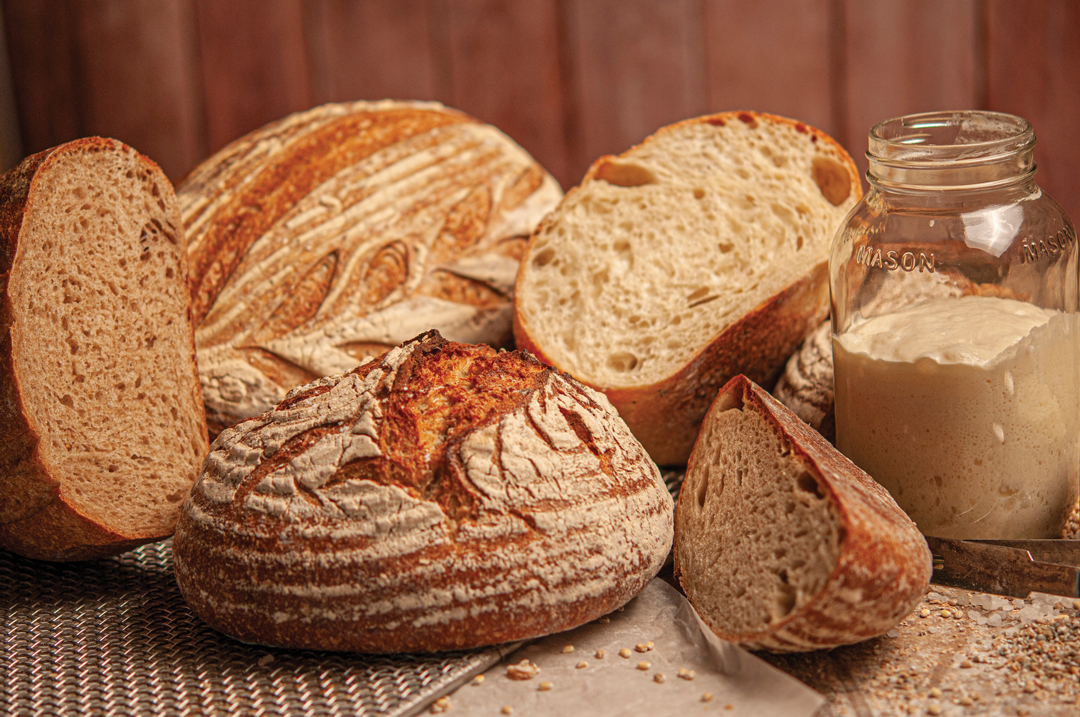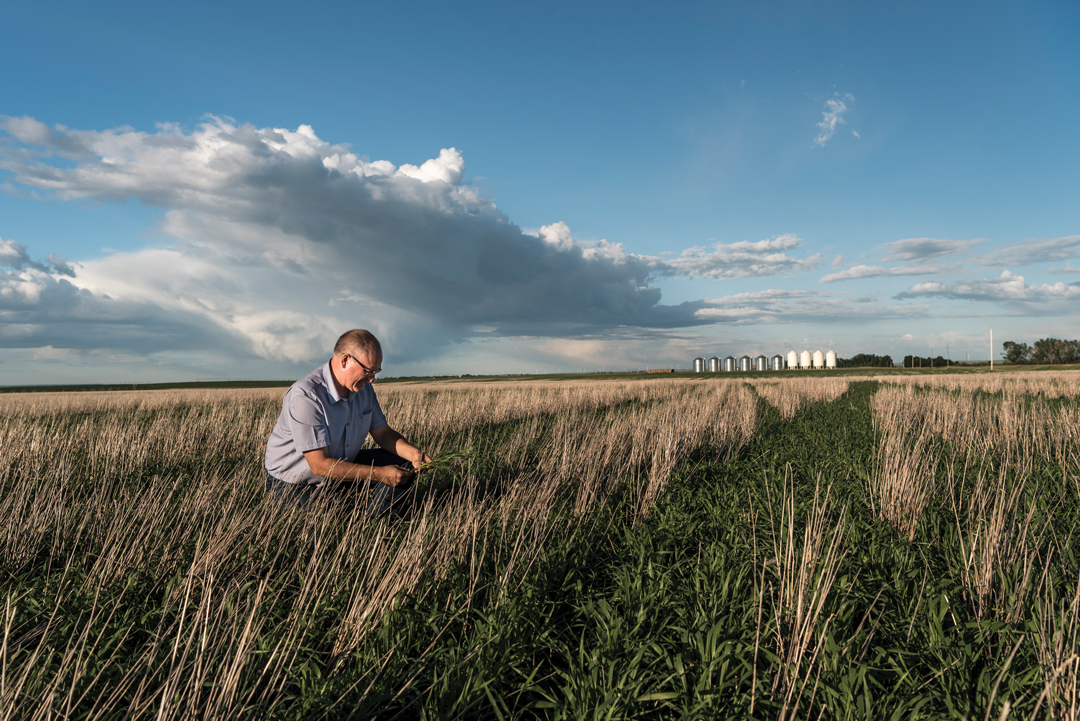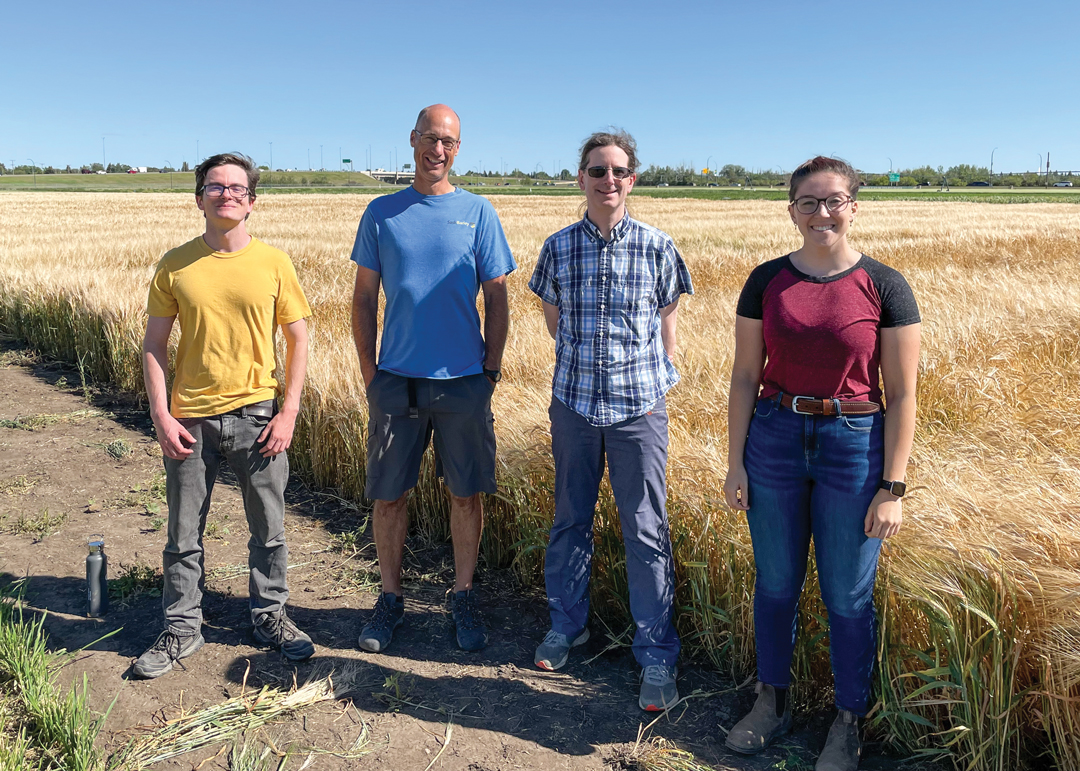SOURDOUGH LIBRARY PRESERVES PAST
BY MELANIE EPP • PHOTO COURTESY OF PURATOS SOURDOUGH LIBRARY
Most bakers will tell you the “starter culture” is the essence of sourdough bread. This includes Jay Cummings, director of bakery and deli operations for Freson Bros., an Alberta-based grocery market chain that sells locally produced food. “Before they hired me, they asked what I would do if I was to run their bakery program,” said Cummings. “I said I would go back to real baking—sourdough baking.” He has developed many starters, but said his one culture, dubbed “Charlie,” which he created for the grocer, is special.
While starters are made with just three ingredients—flour, salt and water—each contains a unique community of yeasts and bacteria. These micro-organisms ferment the carbohydrates in flour to produce the carbon dioxide that makes dough rise. The enzymes and acids they produce give bread its texture, flavour and shelf life. Until recently, little was known about the makeup of these cultures, some of which produce better bread than others. Karl De Smedt, self-described as the world’s only “sourdough librarian,” aims to change this. As part of his duties for Puratos, a Belgian baking ingredient supply company, he maintains cultures from around the world, including three from Canada.
A professional baker, pâtissier, chocolatier and confectioner, De Smedt was tasked with the creation of the Puratos Sourdough Library in St. Vith, Belgium. His pursuit of sourdough secrets began when he read a passage by Roman poet Horace, written in 37 BC. that claimed bakers in Altamura, Italy, made the world’s best bread with durum wheat flour, salt and water. Intrigued by this refence to sourdough, he set out to collect cultures from Italy, Sicily and Sardinia to compare the bread they produce.
“The result was just amazing,” said De Smedt. “Although they look the same, they were very diverse on the level of micro-organisms.”
De Smedt and his colleagues then also analyzed cultures from Italian patisseries. “We found more than 1,400 micro-organisms—strains of yeasts and lactic acid bacteria—in these 37 sourdoughs.”
An estimated 10 to 30 per cent of the world’s population has abandoned bread because of allergies or fear of gluten, said De Smedt. Studies show, though, that the sourdough process makes bread more digestible. “If we can bring [these consumers] back on board, that is going to be good for the entire bakery business,” he said. “That’s why we have this library.”
Launched in October 2013, the non-profit initiative houses more than 130 cultures from 23 countries. These remain the property of their owners and cannot be used or removed from the library without permission. They also serve as backup should the original culture need replacement.
A sourdough purist, Cummings felt strongly enough about the singular quality of Charlie, the Freson Bros.’ dough starter, to submit a sample to the Sourdough Library for analysis in July 2021. The culture is made with Alberta-grown white and hard red spring wheat milled by P&H Milling in Lethbridge. De Smedt determined it contains a lactic acid bacteria found in only one other library culture from Slovenia, and Charlie is now part of the Puratos collection. By pure coincidence, the owners of Freson Bros. have roots in Slovenia.
Puratos Sourdough Library contains additional Canadian cultures from Blackbird Baking of Toronto, ON, and Ione Christensen of Whitehorse, YT, whose family created it in 1898 in Dawson City during the Gold Rush era.
For more information, visit sourdoughlibrary.puratos.com.







Comments